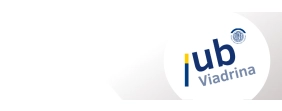Norbert Cyrus - Contested Migration. A Review of Conflict Lines
-
127 views
-
0 likes
-
0 favorites
-

B/Orders
In Motion
- 61 Medien
- hochgeladen 16. September 2021
"Contested Migration - A Review of Conflict Lines"
Lecture as part of the 3rd Summer School of Viadrina Center B/ORDERS IN MOTION
Lecturer: Dr. Norbert Cyrus (Viadrina Center B/ORDERS IN MOTION)
Moderator: PD Dr. Carolin Leutloff-Grandits (Viadrina Center B/ORDERS IN MOTION)
Migration is an issue fiercly contested. Albeit migrants may encounter some sympathy as individuals or smaller groups, the imagination of migration as a dynamic and transformative large-scale phenomenon evokes strong sentiments of unsettledness among relevant parts of the population. The prevalent nativist image that the migrating “them” may endanger “our” public security, wealth and welfare fuels efforts to strictly control and contain cross-border movement of people. The fortification of state borders and intensification of migration control employ digital tools for border-crossing related data collection and processing with the promise to facilitate security for “Us”. Today, governments assembled in the UN officially share the minimal consensus to cooperate in border protection and migration control and to strive jointly for safe, orderly and regular migration. Although dealing with an incommensurable issue, the current policies to curb Covid-19 pandemic strenghtens the propensity to respond to perceived threats and unsolved problems with bordering practices. However, the presence of officially unwanted but economically needed migrants and the deadly fatalities on international borders indicate that current policy preferences fail goal attainment but entail a blatant contempt for self-declared human rights values. In order to overcome moralizing stalemate debates, it seems to be promising to make a step back and appraise the primary conflict lines around migration in order to imagine “real utopian” responses which constitute alternatives to knee-jerk migration control and bordering policies. Eventually, the question occurs how the possibilities of digital tools may contribute to the process of approaching such a “real utopia”. – The presentation does not aim to provide a comprehensive analysis of contested migration and conflict lines but to familiarize with an future-looking approach to address and dissolve the contestedness of migration.











